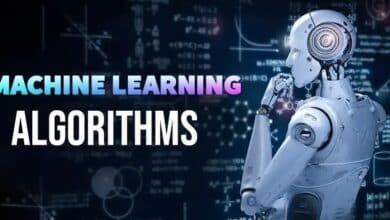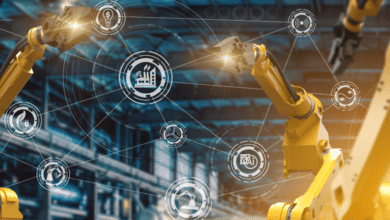Powerful Impact of the Artificial Intelligence (AI) in Daily Life
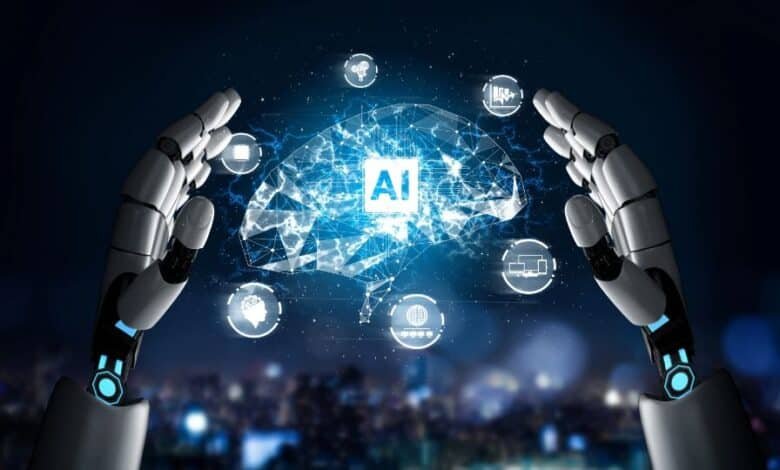
Artificial Intelligence (AI) in Daily Life has swiftly transitioned from a futuristic concept to an integral part of our daily lives revolutionizing various industries and that sectors. From personalized recommendations on streaming platforms to virtual assistants seamlessly organizing our schedules the omnipresence of AI is undeniable. In this comprehensive guide we delve into the myriad ways Artificial Intelligence (AI) influences and then enhances our everyday experiences.
Personalization in Entertainment
In the realm of entertainment, Artificial Intelligence (AI) algorithms meticulously analyze user preferences and viewing habits to curate tailor-made recommendations. Whether it’s suggesting movies on streaming services or crafting personalized playlists on music platforms. Artificial Intelligence (AI) algorithms leverage machine learning to understand individual preferences and deliver content tailored to each user’s tastes.
Enhanced Healthcare Solutions
Artificial Intelligence (AI)-powered healthcare solutions are reshaping the landscape of medical diagnosis and treatment. Advanced algorithms can also analyze medical images with unprecedented accuracy, aiding radiologists in detecting anomalies. And diagnosing conditions at earlier stages. Moreover, predictive analytics algorithms utilize patient data to forecast potential health risks, enabling proactive intervention and personalized care plans.
Artificial Intelligence in Smart Home Integration
The proliferation of smart home devices equipped with Artificial Intelligence (AI) capabilities has transformed the way we interact with our living spaces. From intelligent thermostats that adjust temperature settings based on occupancy patterns to voice-activated virtual assistants that control lighting and appliances, Artificial Intelligence (AI)-driven automation enhances convenience and efficiency in modern households.
Streamlined Communication with Chatbots
In the realm of customer service, Artificial Intelligence (AI)-powered chatbots have become indispensable tools for streamlining communication and enhancing user experience. These virtual assistants utilize natural language processing (NLP) algorithms to understand and respond to customer inquiries promptly, effectively resolving issues and providing support around the clock.
Autonomous Vehicles Revolutionize Transportation
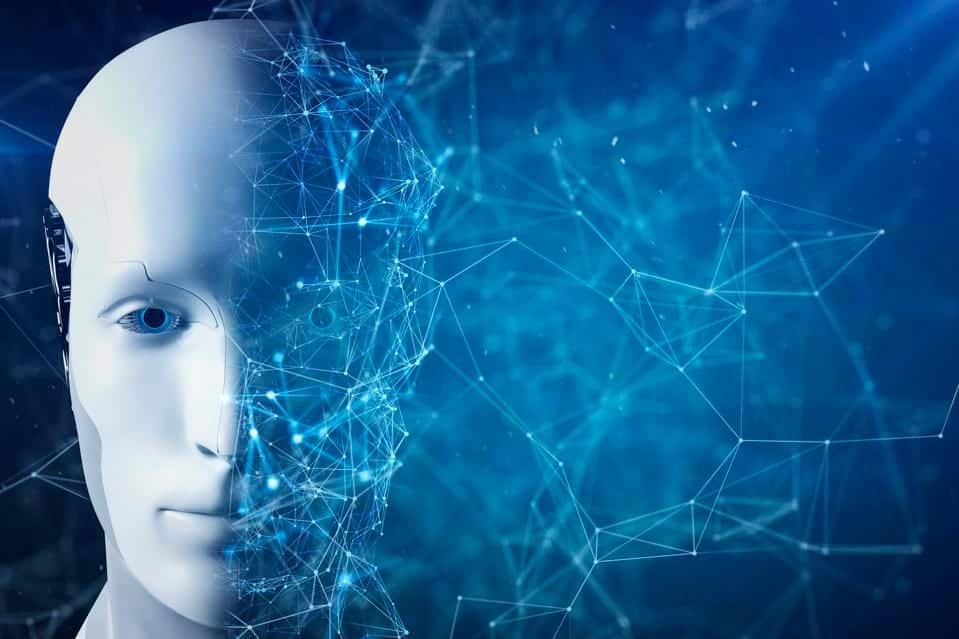
The introduction of autonomous vehicles signals the start of a new age in transportation, one that is marked by increased efficiency and safety. Artificial Intelligence (AI) algorithms power self-driving cars, enabling them to perceive and navigate their surroundings with remarkable precision. By leveraging real-time data and advanced sensors, autonomous vehicles promise to revolutionize urban mobility and reduce traffic congestion.
In Financial Management and Fraud Detection
Artificial Intelligence (AI)-driven algorithms play a pivotal role in financial management and fraud detection, safeguarding transactions, and protecting sensitive data. Machine learning algorithms analyze vast datasets to detect patterns indicative of fraudulent activity, enabling financial institutions to preemptively identify and mitigate risks.
How Artificial Intelligence (AI) is integrated into our daily lives:
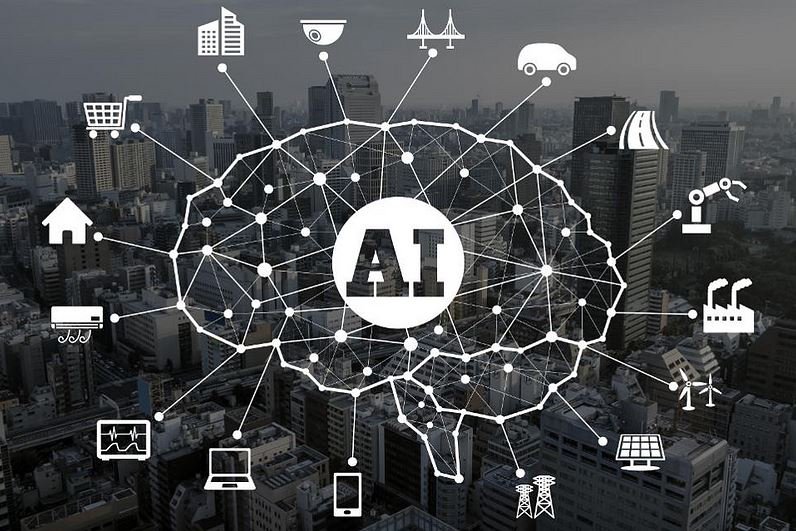
Virtual Assistants
Virtual assistants like Siri, Google Assistant, and then Alexa utilize Artificial Intelligence (AI) algorithms to understand and then respond to user commands. They are capable of doing things like responding to inquiries, making reminders, and then managing smart home appliances.
Artificial Intelligence in Personalized Recommendations
Online platforms use Artificial Intelligence (AI) algorithms to analyze user behavior and preferences, providing personalized recommendations for products, movies, music, and more. By providing content that is specific to each user’s interests, this improves the user experience.
Healthcare Diagnostics
Artificial Intelligence (AI)-powered diagnostic tools assist healthcare professionals in analyzing medical images, detecting abnormalities, and then diagnosing conditions. These tools improve accuracy and then efficiency, leading to better patient outcomes.
Autonomous Vehicles
Self-driving cars incorporate AI technologies to perceive their surroundings, navigate routes, and make real-time decisions while driving. Autonomous vehicles have the potential to revolutionize transportation by enhancing safety and efficiency.
Fraud Detection
Financial institutions utilize AI algorithms to detect fraudulent transactions and then activities. These algorithms analyze patterns and they anomalies in financial data, helping prevent fraudulent behavior and then protect sensitive information.
Artificial Intelligence in Language Translation
AI-powered language translation tools facilitate communication across linguistic barriers. They can also translate text, speech, and then even images in real-time, enabling seamless communication between people who speak different languages.
Artificial Intelligence in Social Media Content Moderation
Social media platforms employ AI algorithms to moderate content, identify and then remove inappropriate or harmful material, and then enforce community guidelines. This helps maintain a safe and positive online environment for users.
Recommendation Systems
E-commerce websites use AI-driven recommendation systems to suggest products based on past purchases, browsing history, and then demographic information. This personalized approach enhances the shopping experience and then increases sales.
Artificial Intelligence in Predictive Maintenance
AI-powered predictive maintenance systems analyze data from sensors and equipment to anticipate potential failures and then schedule maintenance proactively. This reduces downtime, improves reliability, and or prolongs the lifespan of machinery and infrastructure.
Artificial Intelligence in Educational Tools
AI-driven educational tools personalize learning experiences by adapting content and then pacing to individual student needs. These tools can also provide targeted feedback, track progress, and then recommend additional resources to support learning objectives.
Conclusion
In conclusion, the pervasive influence of AI in everyday life is evident across various domains, from entertainment and healthcare to transportation and finance. As AI technologies continue to evolve and permeate every facet of society, embracing innovation and leveraging these advancements will be paramount in navigating the intricacies of the digital age.
Read more : 5G Modems




